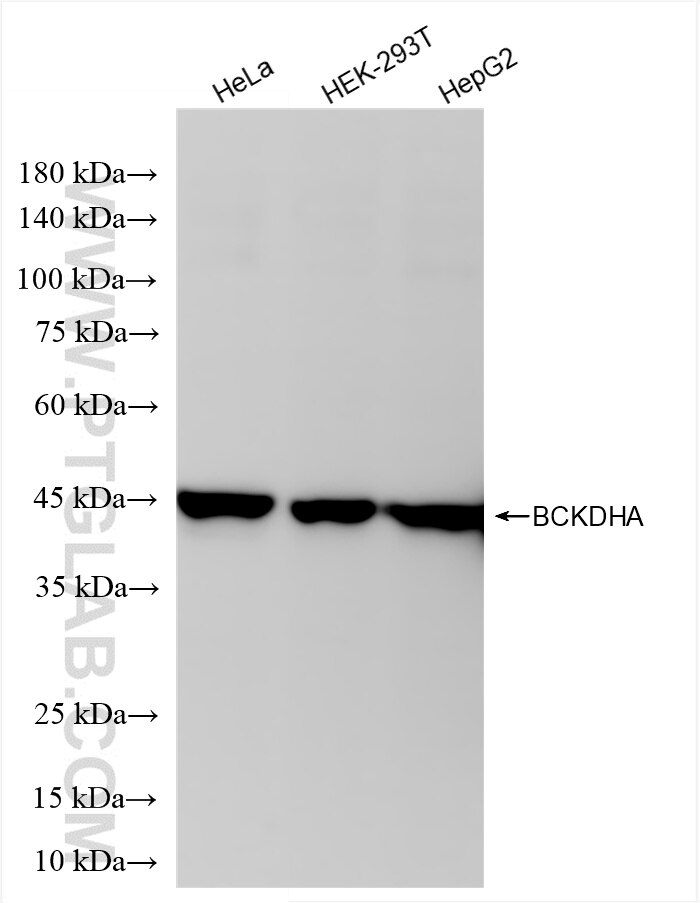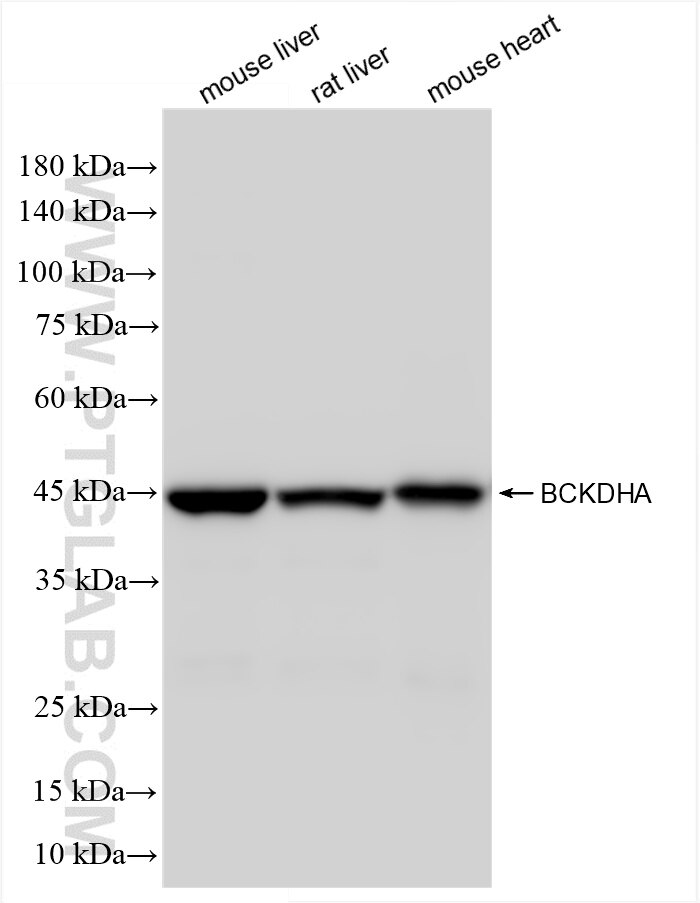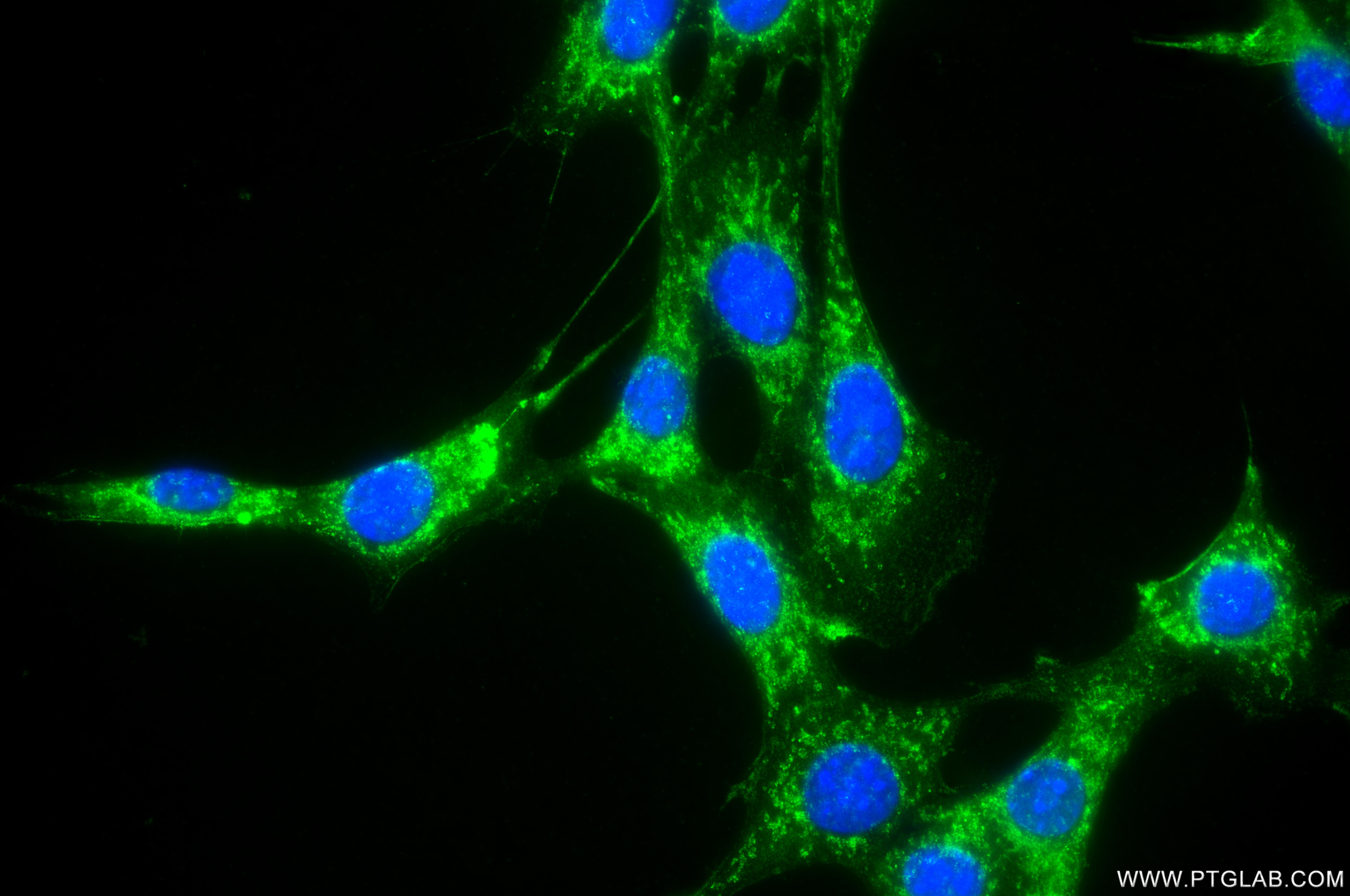Validation Data Gallery
Tested Applications
Recommended dilution
| Application | Dilution |
|---|---|
| It is recommended that this reagent should be titrated in each testing system to obtain optimal results. | |
Product Information
85799-3-PBS targets BCKDHA in WB, Indirect ELISA applications and shows reactivity with human, mouse, rat samples.
| Tested Reactivity | human, mouse, rat |
| Host / Isotype | Rabbit / IgG |
| Class | Recombinant |
| Type | Antibody |
| Immunogen |
CatNo: Ag32613 Product name: Recombinant human BCKDHA protein Source: e coli.-derived, PGEX-4T Tag: GST Domain: 264-445 aa of BC008933 Sequence: CRNNGYAISTPTSEQYRGDGIAARGPGYGIMSIRVDGNDVFAVYNATKEARRRAVAENQPFLIEAMTYRIGHHSTSDDSSAYRSVDEVNYWDKQDHPISRLRHYLLSQGWWDEEQEKAWRKQSRRKVMEAFEQAERKPKPNPNLLFSDVYQEMPAQLRKQQESLARHLQTYGEHYPLDHFDK 相同性解析による交差性が予測される生物種 |
| Full Name | branched chain keto acid dehydrogenase E1, alpha polypeptide |
| Calculated molecular weight | 50 kDa |
| Observed molecular weight | 42-50 kDa |
| GenBank accession number | BC008933 |
| Gene Symbol | BCKDHA |
| Gene ID (NCBI) | 593 |
| Conjugate | Unconjugated |
| Form | |
| Form | Liquid |
| Purification Method | Protein A purification |
| UNIPROT ID | P12694 |
| Storage Buffer | PBS only{{ptg:BufferTemp}}7.3 |
| Storage Conditions | Store at -80°C. |
Background Information
branched chain keto acid dehydrogenase E1, alpha polypeptide (BCKDHA), the gene encoding the regulated subunit of BCKDC was only one of two primary susceptibility genes identified that affected the risk of both type 2 diabetes mellitus (T2DM) and obesity (PMID: 25287287). BIX01294 transcriptionally downregulated the transcription of BCKDHA, which is essential for fueling the tricarboxylic acid (TCA) cycle. Studies have shown that KDM3A, a Jumonji histone demethylase, epigenetically regulates BCKDHA expression by binding to the BCKDHA gene promoter (PMID: 34876693). Moreover, at least four genes including BCKDHA, branched chain keto acid dehydrogenase E1, beta polypeptide (BCKDHB), dihydrolipoamide dehydrogenase (DLD), and dihydrolipoamide branched chain transacylase E2 (DBT) have been reported to be the causative gene for Maple syrup urine disease (MSUD) (PMID: 34187135).



